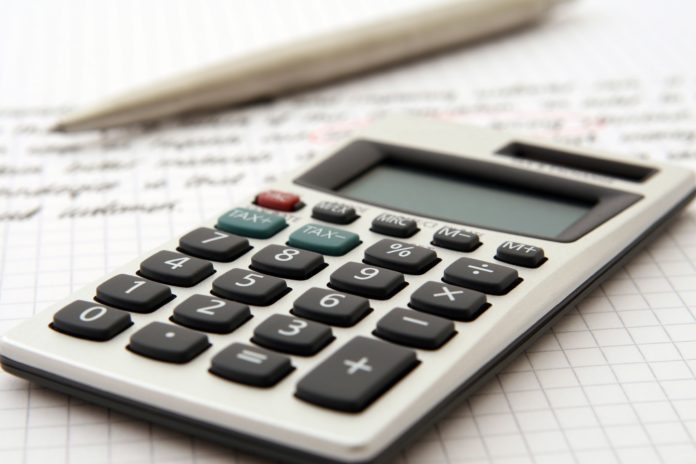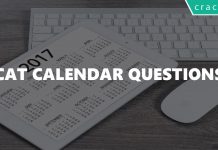Number Systems is a very important topic for all banking exams. In this post, our main focus would be on number system for SBI PO exam. However, this post will be extremely helpful for all banking exams. There are 5-7% questions from this area in all banking exams. Moreover, the concepts learned in number system can turn out to be really handy in questions related to data interpretation and approximations. Hence, any serious candidate should spend sufficient time and effort to master this topic. In this post, we will look at the various question types in number system for SBI PO exam.
Unlimited Banking Tests – Rs. 499
We will start with the very basic concepts related to number systems. We will then have a look at the application of these concepts in various question types which appear under number system in SBI PO exam.
Number System for SBI PO Exam
Let’s start with the type of numbers:
Natural numbers: All positive integers are known as natural numbers. For example 1, 2, 3, 4 . . . . etc.
Whole numbers: All non-negative integers are known as whole numbers. For example 0, 1, 2, 3 . . . . etc.
Note that all natural numbers are whole numbers.
Integers: All numbers whose decimal part is 0 are integers. Integers can be positive or negative. For example, -1, -2, -3 etc are negative integers while 1, 2, 3 etc are positive integers. 0 is also an integer, but it is neither positive nor negative.
Even numbers: Numbers which are divisible by 2 are known as even numbers. For example, 2, 4, 6, etc are all even numbers.
Odd numbers: All numbers which are not divisible by 2 are known as odd numbers. For example, 1, 3, 5, etc. are all odd numbers.
Prime numbers: Prime numbers are those numbers which are only divisible by 1 and the number itself. In other words, prime numbers have only 2 factors. For example, 2, 3, 5, 7, etc. are prime numbers
Composite numbers: All natural numbers which have more than 2 factors are known as composite numbers. For example, 4, 6, 12 etc. are composite numbers.
Please note that 2 is the only even prime number. Also, ‘1’ is neither prime nor composite.
Numbers can be categorised into these broad categories.
Download SBI Po 2018 Syllabus PDF
DIVISIBILITY RULES
Another important concept which is often tested in number system for SBI PO exam is that of divisibility.
So let’s have a look at some basic divisibility tests which will help us solve the questions quickly.
Divisibility by 2: Any number whose last digit is even is divisible by 2.
Divisibility by 3: A number is divisible by 3 if the sum of the digits of the number is divisible by 3. For example, 312 is divisible by 3 because 3+2+1 = 6 which is divisible by 3.
Divisibility by 4: Any number is divisible by 4 if the last 2 digits of the number are divisible by 4. For example, 124 is divisible by 4 because 24 is divisible by 4.
Divisibility by 5: A number is divisible by 5 if its last digit is 0 or 5.
These basic divisibility rules are sufficient to tackle divisibility questions in SBI PO.
BODMAS
BODMAS is another important concept which you should know if you are preparing number system for SBI PO exam. This becomes extremely important because there are 5 questions based on simplifying the given expressions. BODMAS rule gives the sequence in the mathematical operations need to be carried out while simplifying complex expressions.
B => Bracket
O => Of
D => Division
M => Multiplication
A => Addition
S => Subtraction
So it means that if we have a complex expression involving several mathematical operators, we prioritise the operations in the order
B -> O -> D -> M -> A -> S
Let’s consider an example to understand it better
Simplify the expression given below
998 + 4 * 40 ÷ 8 – (16*8) of 2
So going by BODMAS, we have to solve the bracket first
16*8 = 128
So our expression becomes
998 + 4 * 40 ÷ 8 – 128 of 2
The next step in BODMAS is ‘of’
‘of’ is nothing but multiplication only.
128*2 =256
So our expression becomes
998 + 4*40 ÷ 8 – 256
Next step is division, so we have
998 + 4 * 5 – 256
Similarly, on carrying out the further steps, we get
=> 998 + 20 – 256
=> 762
BODMAS rule is very important because it needs to be followed in all questions on simplification or approximations.
Now that we have discussed these basic concepts let’s have a look at the application of these concepts in the questions on number system for SBI PO exam.
Question types under number system for SBI PO exam
Type: 1 – Divisibility Questions
These are the questions which involve the direct usage of divisibility.
For example:
Which of the following is divisible by 3?
(a) 34617
(b) 46903
(c) 10984
(d) 14589
(e) 19682
We have to simply find the sum of the digits for each option and check if the sum is divisible by 3. So, we have
(a) 34616 = 3 + 4 + 6 + 1 + 6 = 20
(b) 46903 = 4 + 6 + 9 + 0 + 3 = 19
(c) 10984 = 1 + 0 + 9 + 8 + 4 = 22
(d) 14589 = 1 + 4 + 5 + 8 + 9 = 27
(e) 19682 = 1 + 9 + 6 + 8 + 2 = 26
Hence we can see that only 27 is divisible by 3. Thus, option 4 is divisible by 3.
Knowing divisibility rules can help save a lot of time in such questions.
Type 2: – Finding the odd term in the sequence
In these type of questions, some numbers would be given, and you would be required to find the odd one out.
Many times such questions make use of divisibility rules.
Let’s take an example of such a question
In the following sequence, identify the odd one out.
336, 524, 218, 612, 508, 424
Now in this sequence, all numbers are multiples of 4 except 218. If you know the divisibility rule of 4, you will able to figure this out quickly.
The questions on finding the odd terms may also test other things.
For example:
Identify the odd terms in the following sequence
3, 5, 7, 9, 11
Now this question is not based on divisibility. Here the knowledge of prime numbers becomes important. 3, 5, 7 and 11 are prime numbers while 9 is a composite number. Hence 9 is the odd one out.
Similarly, such questions can test various other things like perfect squares, perfect cubes etc. Hence one should look out for all such patterns.
Type: 3 – Approximations and Simplifications
You need to know BODMAS to solve these questions. Prioritising the mathematical operators in a wrong manner can lead to the wrong answer. Hence, it is important to follow this order.
Let’s take an example
Find the approximate value of the following expression
33.4*14.7 ÷ 4.9 + 8
Since there are no brackets or ‘of’, the first step would be division
14.7 ≈ 15 and 4.9 ≈ 5
So 14.7 ÷ 4.9 ≈ 15÷5 = 3
=> 33.4*3 + 8
=>33.4*3 ≈ 100
=> 100 + 8 = 108
Hence we can see that BODMAS is essential while solving approximations or simplification questions.
Type: 4 – Number series questions
This type of questions also come under number system for SBI PO exam and many other banking exams. These questions essentially involve figuring out the pattern.
These patterns could involve squares, cubes, prime numbers etc. Let’s take a few examples to understand such patterns
Find the next term in the sequence
3, 10, 15, 26, 35 ?
This question involves squares.
First term is 22 – 1 = 3
Second term is 32 + 1 = 10
Third term is 42 – 1 = 15
Following the same pattern, we can observe that the next term should be
72 + 1= 50
Download SBI PO Free Preparation App
The series questions often involve squares cubes and primes. So you should look for these while solving number system questions for SBI PO exams.
So, in this post, we have tried to cover all possible types of questions in number system for SBI PO exams. These can also be helpful for all other banking exams.





![How To Manage Time In CAT Exam? [Section-wise Tips] How to manage time in CAT exam ?](https://cracku.in/blog/wp-content/uploads/2018/09/fig-03-09-2018_10-54-46-218x150.jpg)